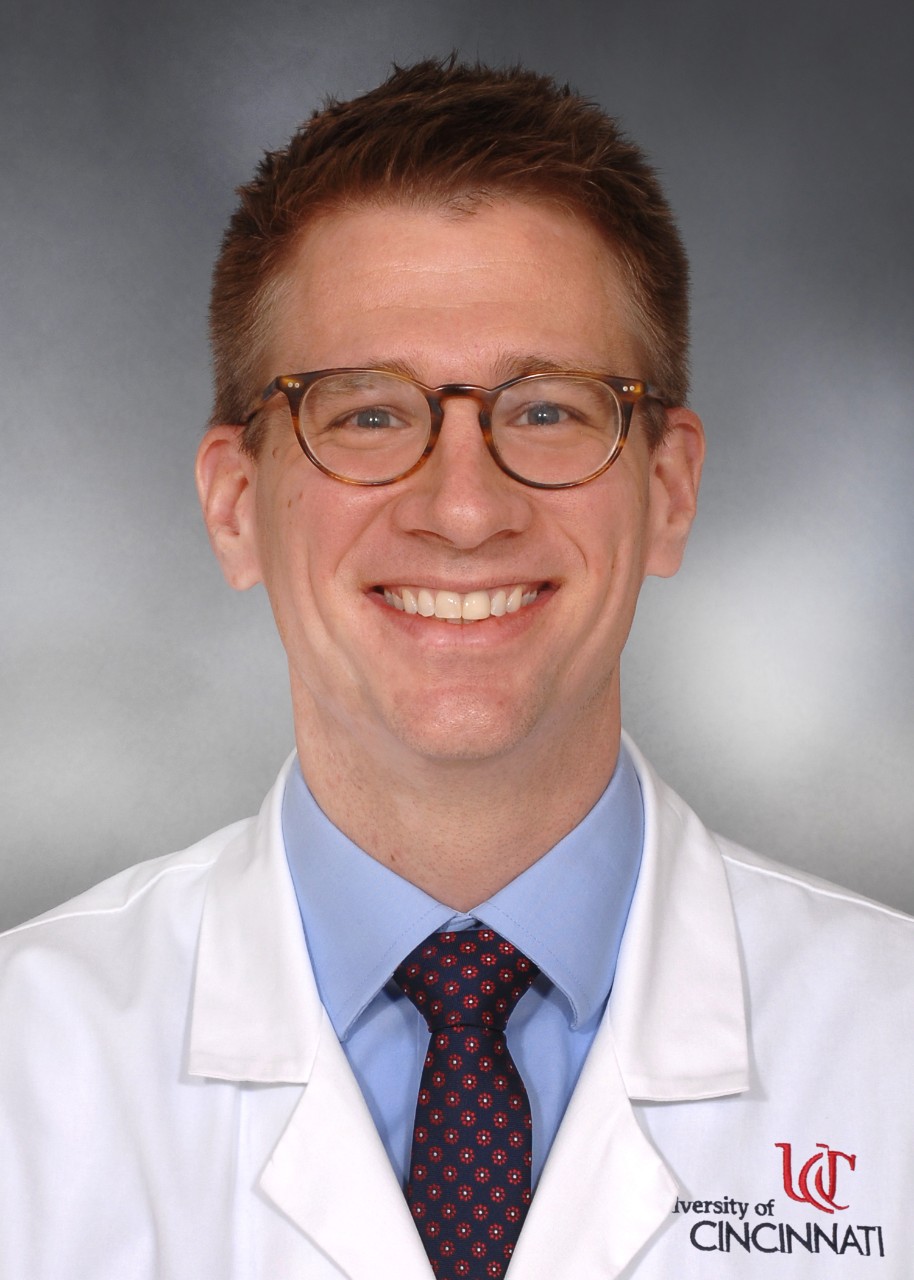
College of Medicine to participate in national effort to assess and improve teaching clinical reasoning
NBME selects college to join its Creative Community program
Clinical reasoning is one of the most important skills educators can help medical students develop. Unfortunately, it is really difficult to teach and, even more so, to assess.
“Assessment of clinical reasoning is often reduced to the most observable skills: medical interviewing, physical exam and documentation of differential diagnosis,” says Matthew Kelleher, MD, an assistant professor in the Department of Pediatrics, co-director of the first- and second year Clinical Skills Course in the College of Medicine and associate program director for the Department of Internal Medicine Residency Program. “While emphasizing these skills are important, in my opinion, we could do better in helping students put everything together in developing clinical reasoning skills.”
In an effort to improve the teaching and assessment of clinical reasoning, the National Board of Medical Examiners (NBME) has selected the College of Medicine to join its Creative Community program as one of 10 medical schools to design and pilot new solutions. Kelleher will lead the work at UC, which will receive $150,000 during the next two years to support the work. Nearly 100 medical colleges applied to be a part of the program. The Creative Community program will be looking at several issues challenging medical schools today. The first issue to be addressed is clinical reasoning.
“Clinical reasoning is essential to becoming a competent clinician, but it can be hard to assess because many of its subcomponents are an invisible process inside the trainee’s head. To make things harder, clinical reasoning is also one of those common terms used in medical education that has been poorly defined,” Kelleher says.
The 10 medical schools selected by the NBME are diverse geographically and racially and differ by size and available resources. The schools will utilize resources offered by NBME to better understand how medical educators currently teach and assess clinical reasoning and how it can be done better.

Matthew Kelleher, MD
“Much like medical education has learned that assessing competence can no longer be described as ‘I know it when I see it,’ clinical reasoning also requires a multidimensional, outcomes-based approach to how we assess it and how we help students improve these skills,” Kelleher says. “That is the mission of this community.”
Clinical reasoning has been commonly assessed using objective structured clinical examination (OSCE), in which simulated patients are seen by students to learn and improve their ability to take a medical history and conduct physical examinations. The NBME has found that almost all medical schools in the country are operating some sort of simulation OSCEs, Kelleher says.
“OSCEs create an opportunity to make the entire clinical reasoning process more visible. Assessment in the simulation environment often focuses on students hitting specific checkpoints, but we are excited to think instead of how students got to those checkpoints. Emphasizing this process should help students develop their own clinical reasoning skills and hopefully serve as faculty development for many to learn and apply it to their teaching and assessment in the clinical workplace,” Kelleher says.
Kelleher equates the teaching of clinical reasoning to cooking.
“Students may master following the steps in a recipe, but do they understand why each ingredient is used, and how to make decisions when results are not expected or tools are limited?” he asks. He adds that OSCEs are a great opportunity to better assess clinical reasoning because “it is highly observable and the structure allows us to focus on certain subcomponents of clinical reasoning.”
Joining Kelleher in the project will be Laurah Lukin, PhD, assistant dean for medical education; Tracy Pritchard, PhD, director of medical education; Pamela Baker, PhD, associate dean for medical education; Michael Sostok, MD, assistant dean for medical education and professor, Department of Internal Medicine; Danielle Weber, MD, assistant professor, Department of Internal Medicine; and Sally Santen, MD, PhD, professor, Department of Emergency Medicine. The group began work earlier this month. Each school involved also will be adding one student to the work groups to be part of the co-creation, piloting and implementation of whatever assessments are generated.
“My hope is that whatever co-created assessments we pilot, that ultimately we help students gain insights into their current development of clinical reasoning skills. It is hard to improve one’s clinical reasoning without first knowing where the opportunities are to grow,” Kelleher says. “Improving the assessment and subsequent teaching of clinical reasoning in medical school could hopefully have long-lasting effects on the patients we serve and particularly the disproportionate effect that clinical reasoning errors contribute to health care disparities.”
Other medical schools involved in the project are Duke University School of Medicine, Howard University College of Medicine, Kaiser Permanente Bernard J. Tyson School of Medicine, Morehouse School of Medicine, Southern Illinois University School of Medicine, University of Central Florida College of Medicine, University of Connecticut School of Medicine, University of New England College of Osteopathic Medicine and University of New Mexico School of Medicine.
Featured image at top: CARE/Crawley Building, UC College of Medicine. Colleen Kelley/UC Creative + Brand
Related Stories
UC professor Ephraim Gutmark elected to National Academy of...
December 20, 2024
Ephraim Gutmark, distinguished professor of aerospace engineering at the University of Cincinnati, was elected to the 2024 class of the prestigious National Academy of Inventors.
UC study examines delivery timing in mothers with chronic...
December 19, 2024
In a study recently published in the journal O&G Open, University of Cincinnati College of Medicine physician researchers found 39 weeks of gestation is optimal for delivery in mothers with chronic hypertension.
Winter can bring increased risk of stroke
December 18, 2024
The University of Cincinnati's Lauren Menzies joined Fox 19's morning show to discuss risk factors for stroke in the winter and stroke signs to look for.
